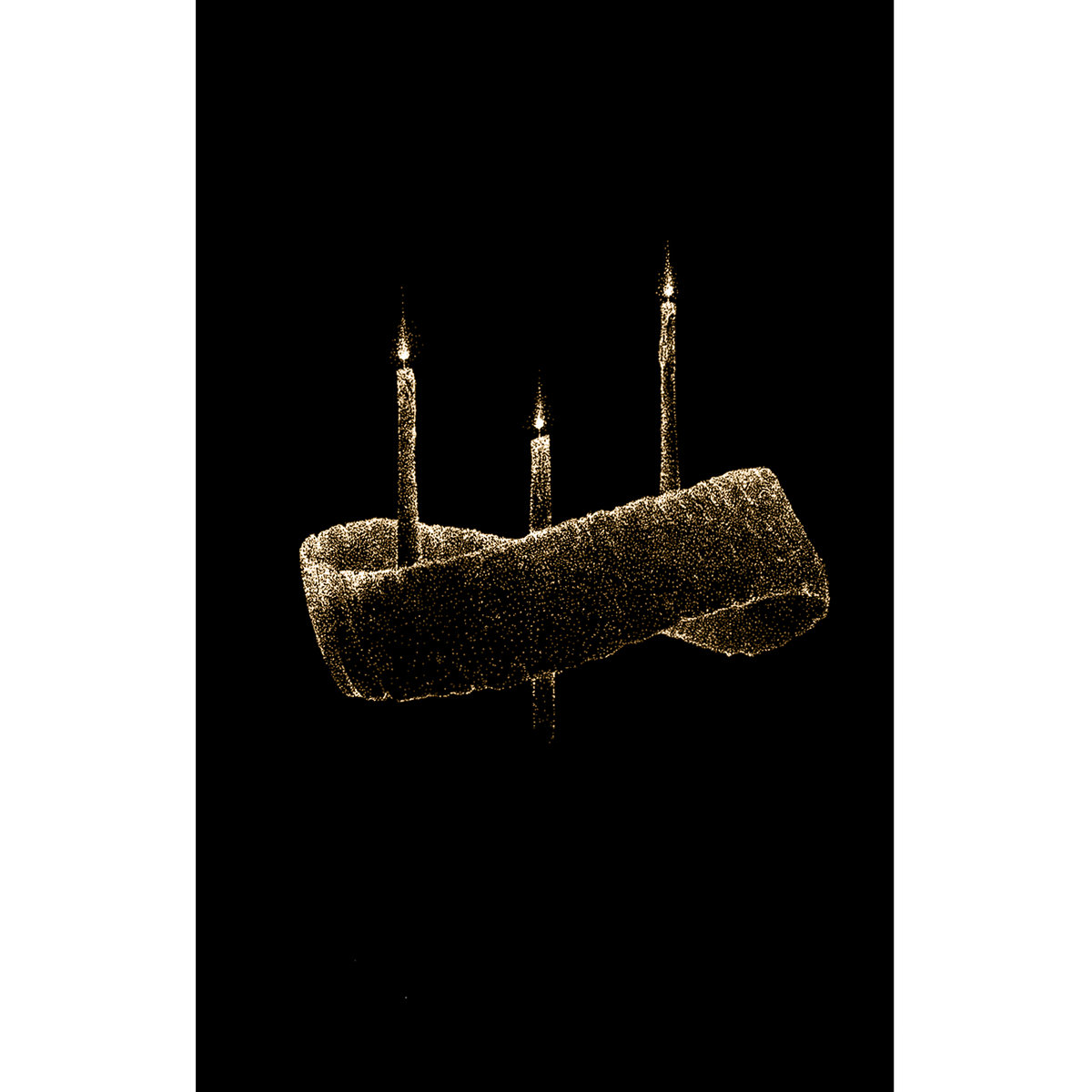Dungeon synth, atmospheric black metal, dark ambient, avant-chamber, neoclassical, and ritual music from the darkest corners of the world. Radio show every Monday at 0000 MST on Radio Dark Tunnel.
Wednesday, March 25, 2020
EPISODE IV
Coma Roulette - Theme From "The Forest At Night"
Non Serviam - Morfie (album version)
Unnatural Ways - Most Of All We Love To Spy
Byzanthian Neckbeard - Devil Worms
Jenn Taiga - Proteus (Track Premiere--review available here)
Vaelastrasz - Hearthglen
S H R I E K I N G - Soul Devourer
Uprising - Uprise
Yte + Mesa - Decaying Empire
Bull Of Apis Bull Of Bronze - O! A Smile Of Blood!
Non Serviam - Crache (Album Version)
Tuesday, March 24, 2020
TRACK REVIEW AND PREMIERE: Jenn Taiga: Proteus
(Ethics disclosure--the host of The Forest At Night, Sarah Allen Reed, was hired to do the cover art for this release.)
Harsh noise.
That's not the first thing you expect to hear off of a twenty-minute track from an insanely talented self-described synth wizard with years of experience behind her, but that's the first thing you hear on Proteus--roughly twenty seconds of harsh noise wall, like an nuke going off in your speakers, followed by some of the most dissonant synths on the entire two-track album.
When I spoke to Jenn about this track, she mentioned that this entire piece was improvised, included as a counterpoint to the structured, symphonic sweeps of Solivagant, the first act of her newest opus, Plight. Releasing on March 27th from Tridroid Records, these two tracks sit opposite each other, united together in dichotomy--planned, plotted yin pitted against a precocious and powerful yang.
Of the two, Proteus is my favorite. As you all have probably noted from my usual musical choices on this show, I don't care for straight genre exercise. I do love my black metals and my crust punks, my grindcores and my dungeon synths, yes--but what I find most exciting in music is variety, the willingness to put the listener on edge, to challenge them, to blow up their eardrums and lay waste to their expectations.
And detonating a bomb made of twenty seconds of harsh noise in front of a twenty-two minute Berlin school-influenced synth piece is a splendid way to get me excited.
The piece doesn't throw that blood rush away mid-stream, either. Jenn Taiga somehow manages to ride that ever-thin line between predictable and not with nothing more than a small army of well-tempered synthesizers--two Korgs, two Moogs, and a small smattering of pedals, and nothing more. The entire ensemble hums with nervous energy, the repeated rhythms and phrases maintaining their familiarity while never succumbing to repetitiveness, the shining heights of the tones mirror brightly against the anxious hum of the lower notes.
Throughout this entire album, Jenn stakes a firm claim upon the summit of the hauntological mountain of digital moonscapes which so many synth throwback acts have tried and failed to climb, while still managing to make the ground around her flagpole uniquely her own. Of course, blowing a nuke or two up definitely helps.
You can pick up the album here on March 27.
Saturday, March 21, 2020
ALBUM REVIEW: 1727 & Möbius: Burning The Black Candles

I grew up in the church.
I wasn't a proverbial preacher's kid by any means, but I still spent every Sunday of my childhood in a Lutheran pew, and damn near every Wednesday night as well. Sundays, the church was packed, but Wednesday nights, it was empty, and a young Sarah would often amuse herself while her foster parents were attending important meetings and other adult nonsense by sneaking through the nave of the cathedral and sitting behind the altar, staring up at the giant stained glass windows from a safe hiding spot on the apse. To me, the cathedral was an imposing structure at night; comforting, but in a foreboding, desolate way. God, I knew, did not want a child like me--but at night, it seemed as though he wasn't there. His house laid empty for me to explore, to rest in, to sit, to fear.
We exist, currently, in an hour of plague. The Ka'bah sits empty at the center of the world, the white floors surrounding it lay bare. Central Park sits empty, free of the sounds of street musicians and the clamor and whispers of a city full of life, and the canals of Venice flow clean for the first time in memory, untouched by the debris and ephemera of human life. The streets we have built and the temples we have erected to capitalism, to our gods, and to our hubris lay barren. The world sits empty, open to gaze upon, to abandon, to walk through, to fear.
Burning The Black Candles would not be out of place either in those lonely nights or in these dark days.
The throat chants and haunting choral passages delivered by Möbius wail lonesomely in the background, beckoning the listener like a siren's song into the harsh, throbbing, industrial pulses of 1727's masterful machines. The throat singing is often barely audible, often sitting upon the same frequencies as the pulsing walls of dense auditory smog, but the voices ring through nonetheless; Talos's rocks pound the walls as Eurydice cries out from hell.
The religious symbolism of both the cover and the track titles are not lost on me, a transgender woman for whom the ways in which Man approaches the Divine are of great artistic influence. I do not fear a God, nor do I worship the Goddess, but this album brings about memories of the peaceful terror that I often felt as a young child, attempting to sleep in the house of a God who did not want my kind--and in times like these, in which the Goddess seems to be in the process of purging that which it does not want from her own home, music like this provides an apt soundtrack. Hymns for the plagues will be sung, and this work is an opus to be reckoned with--come, and worship.
The album drops March 31st, and when it does, you can find it here.
Wednesday, March 18, 2020
EPISODE III
Coma Roulette: Theme From "The Forest At Night"
Bull Of Apis Bull Of Bronze: What Awaits Us (A Void Is But An Open Mouth)
Adzes: Punctuated Equilibrium
Erreth-Akbe: The Word Which Is Only Spoken Once
Ghostwriter: Bell, Book, And Candle
Nomad: Slowly The Glacier Creeps
Putrescene: Entropy
Moon And Azure Shadow: Age Of Darkness And Frost
Mesa: Mother Of The Sea Breeze
Vaelastrasz: The Battle At The Burning Steppes
Void Ritual: Nachzehrer
Andromache: CEREMONY (Track Premiere)
Amethyst Dagger: Lookfar Awaits At The Bay
Uprising: Behold The Eternity Of Stars
Victory Over The Sun: Half-Silvered Mirror
Wishfield: Isolated People In Isolated Rooms
Fjaeldmark: The Pyre
Bittter Lake: Frozen Landscapes
Poppet: Odiogenesis
Finally back from tour! Thanks to DJ Dark Dave for covering for me while I was gone. Here's the official recording of Episode III!
Subscribe to:
Posts (Atom)
